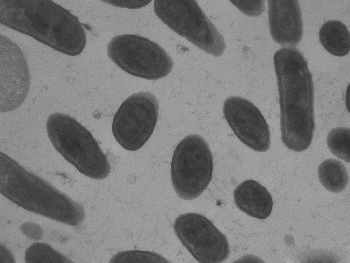Latest News Archive
Please select Category, Year, and then Month to display items
16 February 2024
|
Story ANTHONY MTHEMBU
|
Photo ROSINA MOTHIBA
 Prof Matseliso Mokhele-Makgalwa: Vice Dean; Research, Engagement and Internationalisation in the Faculty of Education at the University of the Free State (UFS).
Prof Matseliso Mokhele-Makgalwa: Vice Dean; Research, Engagement and Internationalisation in the Faculty of Education at the University of the Free State (UFS).
The Faculty of Education at the University of the Free State (UFS) proudly announces the appointment of Prof Matseliso Mokhele-Makgalwa as Vice Dean of Research, Engagement and Internationalisation, effective 1 January 2024. With a wealth of experience and a fervent dedication to academic advancement, Prof Mokhele-Makgalwa’s appointment marks a significant stride towards enhancing the faculty’s global presence and academic prowess.
Transitioning into a new role
Transitioning seamlessly from her previous role as Acting Vice Dean of Research and Postgraduate Studies, Prof Mokhele-Makgalwa perceives this new appointment as a natural progression, elevating her responsibilities to spearhead research endeavours, foster engagement, and cultivate international partnerships within the faculty. Embracing this pivotal role with enthusiasm, she underscores the importance of collaborative efforts among faculty members, securing research funding, and ensuring the quality and impact of scholarly outputs.
“I appreciate the opportunity to contribute significantly to the faculty’s research, engagement and internalisation efforts,” says Prof Mokhele-Makgalwa. “I look forward to collaborating with the faculty staff members to advance our academic initiatives on a broader scale.”
A vision of progression for the faculty
At the heart of her vision lies a commitment to realise the UFS’s Vision130, wherein Prof Mokhele-Makgalwa aims to elevate the international profile of the faculty, foster impactful research, promote engaged scholarship, and facilitate knowledge exchange on a global scale. Her strategic objectives also include positioning the faculty among the top three education schools nationally, reflecting her dedication to academic excellence and institutional advancement.
Research eradicates bacteria from avocado facility
2017-01-17

Listeria monocytogenes as seen under an electron
microscope. The photo was taken with a transmission
electron microscope at the microscopy unit of the UFS.
Bacteriophages (lollipop-like structures) can be seen
next to the bacterial cells.
Photo: Supplied
“The aim of my project was to identify and characterise the contamination problem in an avocado-processing facility and then to find a solution,” said Dr Amy Strydom, postdoctoral fellow in the Department of Microbial Biochemical and Food Biotechnology at the University of the Free State (UFS).
Her PhD, “Control of Listeria monocytogenes in an Avocado-processing Facility”, aimed to identify and characterise the contamination problem in a facility where avocados were processed into guacamole. Dr Strydom completed her MSc in food science in 2009 at Stellenbosch University and this was the catalyst for her starting her PhD in microbiology in 2012 at the UFS. The research was conducted over a period of four years and she graduated in 2016. The research project was funded by the National Research Foundation.
The opportunity to work closely with the food industry further motivated Dr Strydom to conduct her research. The research has made a significant contribution to a food producer (avocado facility) that will sell products that are not contaminated with any pathogens. The public will then buy food that is safe for human consumption.
What is Listeria monocytogenes?
Listeria monocytogenes is a food-borne pathogenic bacterium. When a food product is contaminated with L. monocytogenes, it will not be altered in ways that are obvious to the consumer, such as taste and smell. When ingested, however, it can cause a wide range of illnesses in people with impaired immune systems. “Risk groups include newborn babies, the elderly, and people suffering from diseases that weaken their immune systems,” Dr Strydom said. The processing adjustments based on her findings resulted in decreased numbers of Listeria in the facility.
The bacteria can also survive and grow at refrigeration temperatures, making them dangerous food pathogens, organisms which can cause illnesses [in humans]. Dr Strydom worked closely with the facility and developed an in-house monitoring system by means of which the facility could test their products and the processing environment. She also evaluated bacteriophages as a biological control agent in the processing facility. Bacteriophages are viruses that can only infect specific strains of bacteria. Despite bacteriophage products specifically intended for the use of controlling L. monocytogenes being commercially available in the food industry, Dr Strydom found that only 26% of the L. monocytogenes population in the facility was destroyed by the ListexP100TM product. “I concluded that the genetic diversity of the bacteria in the facility was too high and that the bacteriophages could not be used as a control measure. However, there is much we do not understand about bacteriophages, and with a few adjustments, we might be able to use them in the food industry.”
Microbiological and molecular characterisation of L. monocytogenes
The bacteria were isolated and purified using basic microbiological culturing. Characterisation was done based on specific genes present in the bacterial genome. “I amplified these genes with polymerase chain reaction (PCR), using various primers targeting these specific genes,” Dr Strydom said. Some amplification results were analysed with a subsequent restriction digestion where the genes were cut in specific areas with enzymes to create fragments. The lengths of these fragments can be used to differentiate between strains. “I also compared the whole genomes of some of the bacterial strains.” The bacteriophages were then isolated from waste water samples at the facility using the isolated bacterial strains. “However, I was not able to isolate a bacteriophage that could infect the bacteria in the facility.